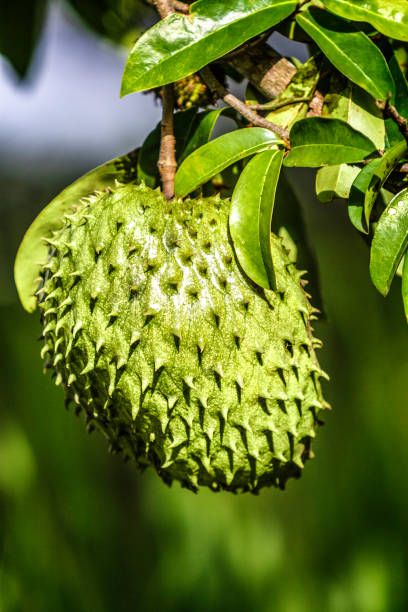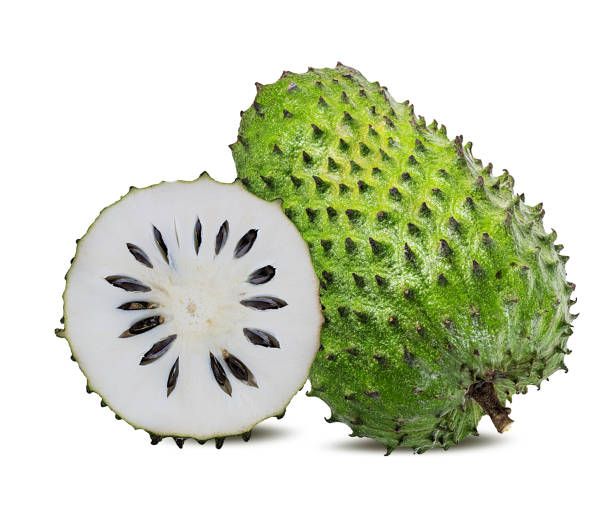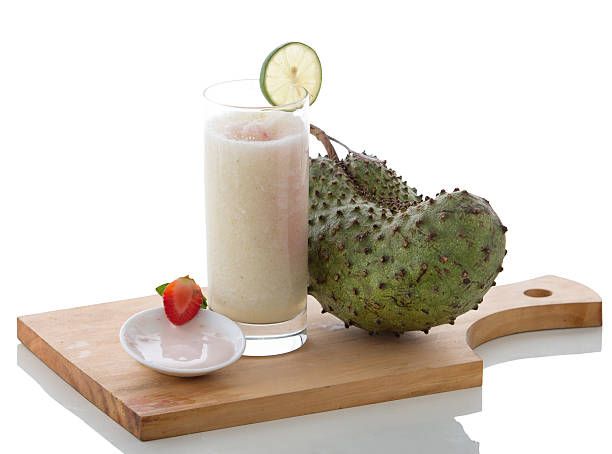Soursop is fruit that is dark green in color and it's also pricky, It is also called cherimoya, Guanabara, Brazilian pawpaw, custard apple, and annona muricata. It belongs to the family Annonaceae, it grows in tropical regions in Southeast Asia, South America and Africa. It grows in areas with high humidity and relatively warm winter. It usually taste like strawberry, apple, pineapple, and it also has a sour taste. It grows about 30 feet tall, it leaves are dark green and oval in shape. When ripened, the flesh is usually juicy, whitish and of good aroma that attract one to eat it.
This fruit can be used to make fruit juice, ice cream, and candies. It is consumed in Venezuela, Colombia, Nigeria, Brazil, Fiji, Mexico and some other countries.
The leaves of soursop is usually boiled to make tea as a herbal medicine in Indonesia.
THE NUTRITIONAL CONTENTS OF SOURSOP
Soursop contains fibre, carbohydrates, vitamin C, potassium, sodium, niacin, riboflavin, folate, thiamine and iron.
HEALTH BENEFITS OF SOURSOP
Soursop pulp help to impede the growth of cancer cells; it contains Annonacin that stops the growth of cancer cells.
Soursop pulp serves as antiviral substance; it contains antibiotics properties which is for the treatment of herpes (a viral infection that affects the body and could remain there for life time.)
Soursop pulp enhances the immune system; it contains Annonacin, acetogenins, annonol, annocatalin and linoleic acid that boost the immune system.
Soursop pulp contains vitamin C which is an antioxidant that helps to improve good health and slows down ageing.
Soursop contains vitamin B1(thiamine) and vitamin B2 (riboflavin) which helps to maintain a healthy blood cells. Some studies shows that soursop pulp reduces inflammation.
SIDE EFFECTS OF SOURSOP
Avoid eating or drinking it seed and leaves as tea;
If you have diabetes,
If you are taking drugs to reduce hypertension,
If you have liver disease,
If you have kidney disease, except it is by doctors prescription.




